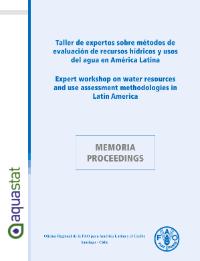Location
A unified Thai kingdom was established in the mid-14th century. Known as Siam until 1939, Thailand is the only Southeast Asian country never to have been colonized by a European power. A bloodless revolution in 1932 led to the establishment of a constitutional monarchy. In alliance with Japan during World War II, Thailand became a US treaty ally in 1954 after sending troops to Korea and later fighting alongside the US in Vietnam. Thailand since 2005 has experienced several rounds of political turmoil including a military coup in 2006 that ousted then Prime Minister THAKSIN Chinnawat, followed by large-scale street protests by competing political factions in 2008, 2009, and 2010. THAKSIN's youngest sister, YINGLAK Chinnawat, in 2011 led the Puea Thai Party to an electoral win and assumed control of the government. A blanket amnesty bill for individuals involved in street protests, altered at the last minute to include all political crimes - including all convictions against THAKSIN - triggered months of large-scale anti-government protests in Bangkok beginning in November 2013. In early May 2014 YINGLAK was removed from office by the Constitutional Court and in late May 2014 the Royal Thai Army staged a coup against the caretaker government. Then head of the Royal Thai Army, Gen. PRAYUT Chan-ocha, was appointed prime minister in August 2014. The interim military government created several interim institutions to promote reform and draft a new constitution. Elections are tentatively set for mid-2017. King PHUMIPHON Adunyadet passed away in October 2016 after 70 years on the throne; his only son, WACHIRALONGKON Bodinthrathepphayawarangkun, ascended the throne in December 2016. Thailand has also experienced violence associated with the ethno-nationalist insurgency in its southern Malay-Muslim majority provinces. Since January 2004, thousands have been killed and wounded in the insurgency.
Thailand is a constitutional monarchy.
Source: CIA World Factbook
Members:
Resources
Displaying 71 - 75 of 104Dévelopment de l'Agriculture 6. L'utilisation des ressources halieutiques sauvages pour l'aquaculture fondée sur les captures. Directives techniques pour une pêche responsable de la FAO No. 5. Supplement 6
Ces directives techniques sur l’utilisation des ressources halieutiques sauvages pour l’aquaculture fondée sur les captures (CBA) ont été préparées par le Département des pêches et de l’aquaculture de l’Organisation des Nations Unies pour l’alimentation et l’agriculture (FAO) sous la coordination d’Alessandro Lovatelli, Fonctionnaire chargé de l’aquaculture, Division de l’utilisation et de la conservation des ressources des pêches et de l’aquaculture.
Dévelopment de l'Agriculture 6. L'utilisation des ressources halieutiques sauvages pour l'aquaculture fondée sur les captures. Directives techniques pour une pêche responsable de la FAO No. 5. Supplement 6
Ces directives techniques sur l’utilisation des ressources halieutiques sauvages pour l’aquaculture fondée sur les captures (CBA) ont été préparées par le Département des pêches et de l’aquaculture de l’Organisation des Nations Unies pour l’alimentation et l’agriculture (FAO) sous la coordination d’Alessandro Lovatelli, Fonctionnaire chargé de l’aquaculture, Division de l’utilisation et de la conservation des ressources des pêches et de l’aquaculture.
Taller de expertos sobre métodos de evaluación de recursos hídricos y usos del agua en América Latina -
Information on water use is required for political, economic and academic decision making on issues affecting everyone?s life. Owing to fi nancial constraints, it is diffi cult to have complete and comprehensive information on everything related to water. Techniques and methodologies are, therefore, used to affordably maximize control. To improve understanding of the different techniques and methodologies used to generate information, the AQUASTAT team sent thematic questionnaires to approximately 170 countries in April 2009.
Taller de expertos sobre métodos de evaluación de recursos hídricos y usos del agua en América Latina -
Information on water use is required for political, economic and academic decision making on issues affecting everyone?s life. Owing to fi nancial constraints, it is diffi cult to have complete and comprehensive information on everything related to water. Techniques and methodologies are, therefore, used to affordably maximize control. To improve understanding of the different techniques and methodologies used to generate information, the AQUASTAT team sent thematic questionnaires to approximately 170 countries in April 2009.
Taller de expertos sobre métodos de evaluación de recursos hídricos y usos del agua en América Latina -
Information on water use is required for political, economic and academic decision making on issues affecting everyone?s life. Owing to fi nancial constraints, it is diffi cult to have complete and comprehensive information on everything related to water. Techniques and methodologies are, therefore, used to affordably maximize control. To improve understanding of the different techniques and methodologies used to generate information, the AQUASTAT team sent thematic questionnaires to approximately 170 countries in April 2009.



